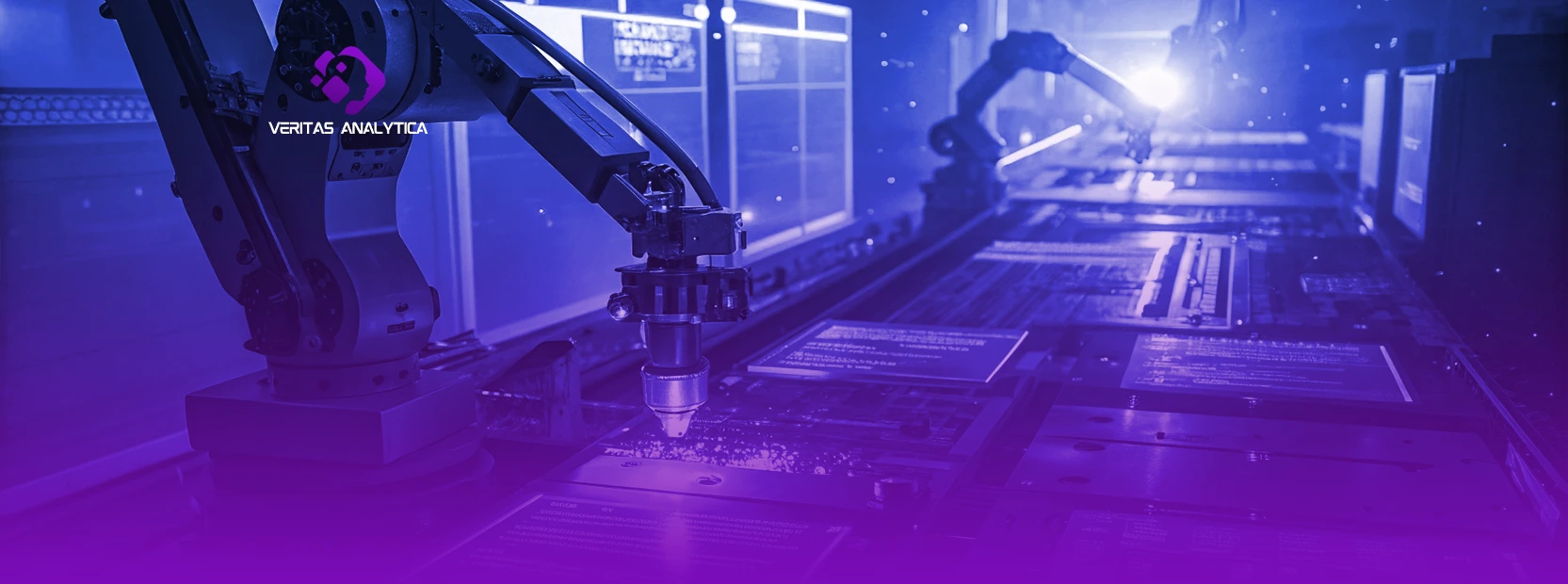Revolutionizing Industries: The Impact of Big Data and AI on Tailored Solutions
Introduction
In this modern time, artificial intelligence and big data play a vital role in optimizing tools and techniques that are significant in altering different sectors, including healthcare, retail, manufacturing, and so on. These techniques play a huge role in optimizing operations, efficiency, and strategic decision-making. This article reflects a specific solution to how artificial intelligence and big data analytics services are transforming industrial sectors.
1. Expanding Strategic Business Intelligence
Big data analytics services and AI help not only in understanding the market trends but also in predicting the future risks and opportunities with high accuracy, which is crucial for maintaining competition in rapid market change. Additionally, AI has enhanced this capability through process automation, data analytics, and data integration techniques that help businesses in strategic decision-making find patterns that were previously unnoticed.
2. Enhancing Consumer Engagement through Precision Targeting
AI’s efficiency in processing a large amount of data uncovers consumer behavior and patterns. For example, let’s take an example of online shopping: how AI suggests all the relevant products that customers have selected in the past and shows the relevant web searches. This approach not only satisfies customers but also derives sales through personalized marketing. With this, companies can target their audience with precision, optimizing the timing and relevance of their marketing initiatives to maximize efficiency and resonance with consumers.
3. Elevating Customer Service with Proactive AI
AI systems now resolve issues that optimize customer service. For example, Zappos uses AI to scrutinize customer interactions, which helps the company to offer run-time solutions that ultimately strengthen customer loyalty and experience, service effectiveness, prevent future problems, and ensure positive and long-term relationships with customers.
4. Boosting Operational Efficiency and Reducing Costs
AI’s predictive analytics capabilities help businesses streamline their operations and reduce expenses. For instance, General Electric leverages big data to foresee maintenance requirements and enhance equipment efficiency, which markedly lowers downtime and cuts operational expenses. This application of AI not only optimizes resource use but also boosts overall productivity and cost-effectiveness.
5. Influencing Consumer Behavior with Advanced Big Data Analytics Services
By examining comprehensive data on customer behaviors, businesses can steer consumer purchasing choices. Netflix, for example, utilizes data from users’ viewing habits to suggest films and series, which boosts viewer involvement and helps maintain subscriber loyalty. This strategic use of analytics not only enhances the user experience but also supports sustained business growth.
6. Revolutionizing Industry Marketing with AI-Powered Personalization
Prospects are often inundated with similar messages, emails, and ads from a wide variety of industries, which can significantly reduce conversion rates. Harvard Business Review refers to these prospects as “customers,” as they are often treated as clusters by different industries. However, by leveraging AI, companies can adopt a more personalized approach to engage their target audience.
AI enables businesses to filter and segment these prospects more effectively, allowing for tailored interactions. For example, Intuit Mailchimp incorporated AI into their campaigns in 2023, resulting in a significant improvement in ROI. Utilizing AI in daily tasks not only enhances the velocity of the team but also boosts its overall efficiency.
7. Harnessing AI and Big Data Analytics Services for Industry-Specific Competitive Edge
Big Data and AI are redefining industry-specific solutions by continuously monitoring competitor activities, market positioning, and performance metrics. This real-time insight allows businesses to pinpoint competitive advantages and identify areas for differentiation, enabling proactive strategy adjustments. For instance, Unilever leverages AI to track competitors’ activities in real time. By analyzing social media, market trends, and consumer sentiment, Unilever adapts its strategies to remain competitive, drive product innovation, and quickly respond to market shifts.
8. Driving Innovation with Big Data and AI in Industry Solutions
Big Data and AI are reshaping industry-specific solutions by identifying emerging customer needs and market trends, fueling innovation that keeps businesses ahead. Amazon exemplifies this transformation by leveraging these technologies to refine its offerings. Through the analysis of extensive customer data—such as purchase history, browsing habits, and feedback—Amazon creates cutting-edge products and services like Alexa and Amazon Prime, tailored to meet the shifting demands of consumers
9. Transforming Industry Solutions with Data-Driven Partnerships
By analyzing industry data, AI identifies potential partners that align with business objectives, transforming industry-specific solutions. These strategic alliances can lead to new distribution channels, complementary offerings, and shared resources, driving mutual growth. For example, LinkedIn leverages AI to uncover business partnerships, enabling companies like Microsoft to expand their market reach and integrate new technologies in line with their strategic goals.
10. Reducing Global Expansion Risks with In-Depth Market Assessments
By analyzing local consumer behavior, demand, and regulatory landscapes, Industries can assess the viability of entering new markets, reducing the risks associated with global expansion. This data-driven approach helps tailor strategies to specific markets. For example, Starbucks leverages these insights to evaluate market potential. By understanding local consumer preferences and market conditions, Starbucks customizes its offerings to align with local culture and demand, ensuring successful global expansion.





